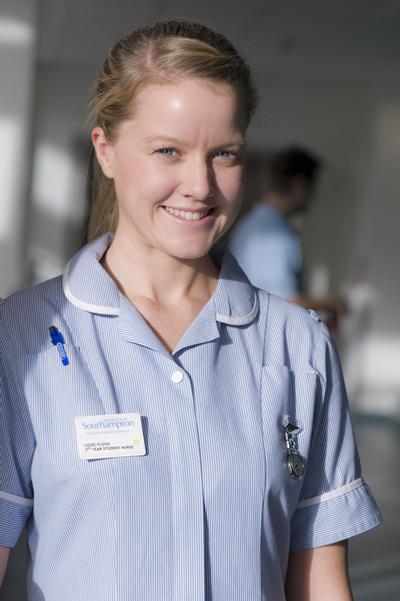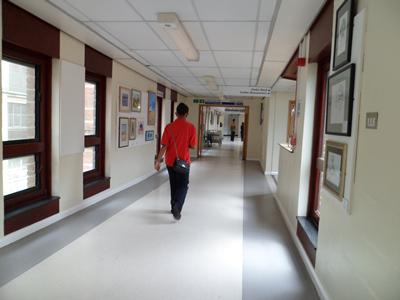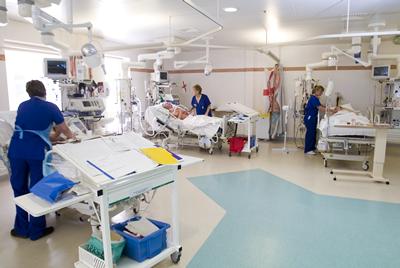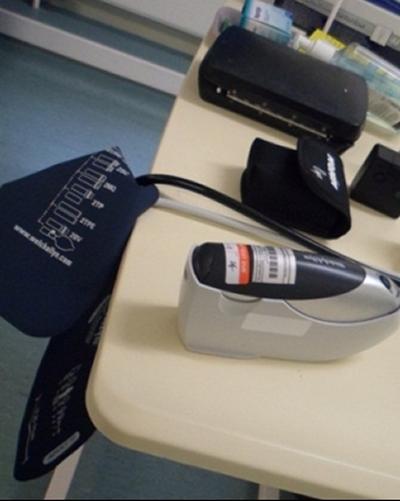Year 2 nursing students have put together a list of their top tips for the first day / first week to make it easier for you to get started and settle in as soon as possible.
Placement pre-arrival checklist
- Make contact (email, phone, visit) with the department or supervisor (do you have their details?). Find out what time you should be there.
- If you are shy, email your supervisor and explain that you would like a meeting with him/her on your first day; List in advance what you would like to discuss.
- Ask about the dress code. Do you need to wear your uniform before arriving to the placement or can you change on placement?
- Make sure you know how to get there. Print out directions and/or a map.
- How will you get to the placement? Are you going by car/bus or train?
- Is there anywhere to park and how much is it?
- Make sure you know how you will get there safely if you are on a night shift.
- Think about where you are staying - are you renting or in hospital accommodation? Make sure you sort this as soon as possible.
- Have a look at the log book and know what is expected of you.
- Read up/refresh key procedures and protocols beforehand. Is there any pre-reading or preparation required?
- Research the department/staff - find out what services they offer and look at the hospital website ifthere is one available.
- Take with you a notebook and pen especially for jotting down protocols/observations/professional development practice/log-ins/door codes/names. This is particularly useful during the first few weeks.
- Bring your identity card.
-
Be prepared to have your photo taken for your ID badge.
-
Will you need to organise childcare?
-
Do you have contact details of your personal and/or pastoral tutor? You may wish to contact them if you experience any difficulties.
-
Check your Assessment of Practice (AoP) for your induction.
Upon arrival
- Introduce yourself to the sister
- Say what year you are in
- If you are shy or nervous, tell them
- You may wish to explain how knowledgeable you are and what experience you have had previously [although some students disagree whether this is helpful or not]
- Show enthusiasm and tell them what you want to learn
- Smile lots and be willing
-
Remember you are there to learn and not to know it all
Interacting with senior clinical staff
- Be prepared to ask questions
- Be prepared to feel unsure of what to do in your first week, you will get used to it. You don't wake up knowing how to nurse properly
- Focus on your strengths and be prepared to face your limitations. It's okay to have both.
- Discuss whether you can arrange to do visits
- Arrange to work with a variety of staff
Useful things to do on placement
- Get to know the environment
- Make use of your time - don't sit and wait as you will be bored
- Seek out learning opportunities; ask first to observe and then to be supervised
- If you find difficult to interact with mentor/staff, work out what you think you could do in this placement
- Remember to spend time talking to patients. You may find out something now that nobody else knows; it may improve their care / experience
Research the conditions you are likely to encounter before hand
- Don't be shy and talk to the Health Care Support Worker
- Make supportive relationships at work/placement
- Talk to the ward clerk - they are usually very nice, welcoming, and supportive
- Talk to people - housemates, friends, course friends, tutor; try not to bottle up your feelings
- Be patient - first week may be slow/difficult; step back and observe; find your feet



